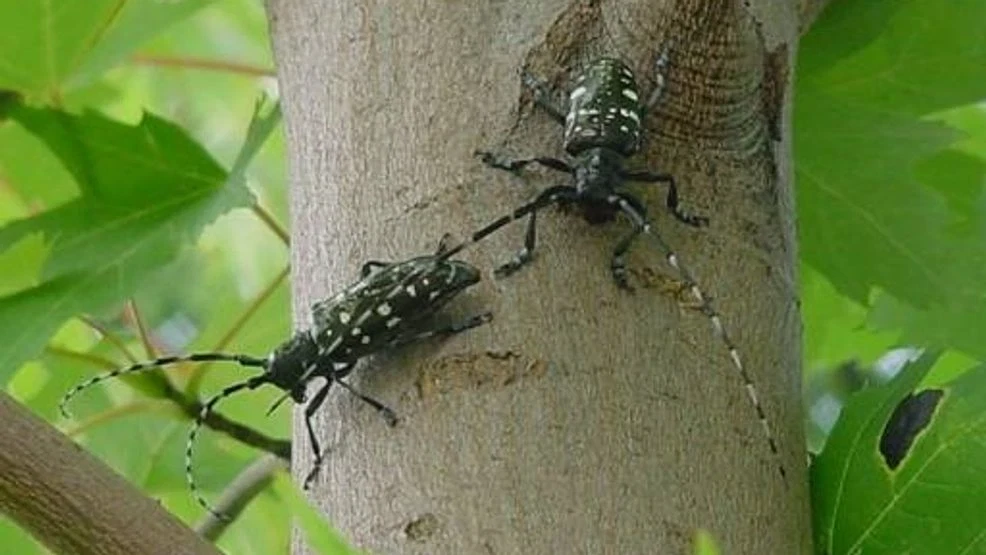Asian Longhorned Beetle Detected at Mount Pleasant Shopping Center
MOUNT PLEASANT, S.C. — State agricultural officials have confirmed the detection of an Asian longhorned beetle at a shopping center in Mount Pleasant, raising concerns over the invasive pest’s spread across South Carolina’s hardwood trees.
Discovery and Immediate Response
The beetle was found on August 24 by two off-duty inspectors with the Clemson University Department of Plant Industry (DPI), who noticed suspicious damage on maple trees. Follow-up surveys confirmed the presence of the destructive insect.
Clemson DPI is now working with the U.S. Department of Agriculture Animal and Plant Health Inspection Service (APHIS) to determine the full extent of the infestation. An official quarantine area is expected to be announced in the coming weeks.
Threat to South Carolina’s Trees
The Asian longhorned beetle (Anoplophora glabripennis) is a wood-boring pest that attacks a range of hardwood trees, including maple, elm, willow, sycamore, poplar, and birch.
By boring deep into trees, the beetle interrupts the flow of sap, weakening and eventually killing its host. Infested trees can also pose safety risks, as branches may drop or entire trees may collapse during storms.
State’s Ongoing Battle Against the Pest
This detection follows a five-year eradication effort in Hollywood, S.C., where infestations have persisted. South Carolina is the sixth U.S. state to record Asian longhorned beetle infestations. While the pest has been eradicated in New Jersey and Illinois, it continues to challenge eradication teams in New York, Massachusetts, and Ohio.
Officials Urge Public Cooperation
Authorities are calling on residents, arborists, construction crews, and debris contractors in Mount Pleasant to avoid moving hardwood debris, which could spread the pest further.
Survey teams need access to private properties to examine trees for signs of damage. Officials stress that community participation is critical:
“The number one thing we need is access to property in the inspection area,” said Steven Long, assistant director of Clemson Regulatory Services. “The more eyes we have looking for the insect and the more obvious damage it causes, the more likely we are to find it.”
How to Spot and Report the Beetle
The Asian longhorned beetle is shiny black with white spots and long, banded antennae. Adults grow up to 1.5 inches long. Signs of infestation include:
- Round exit holes the size of a pencil in trunks or branches
- Sap oozing down bark, leaving dark streaks
- Shallow depressions where eggs were laid
- Sawdust piles at the tree base or in branch junctions
South Carolinians who suspect an infestation may report it at Clemson’s Asian Longhorned Beetle site (clemson.edu/alb), email stopalb@clemson.edu, or call 843-973-8329.
Do you think South Carolina should expand tree inspection programs to prevent invasive species like this from spreading further? Share your thoughts with us at SaludaStandard-Sentinel.com.







